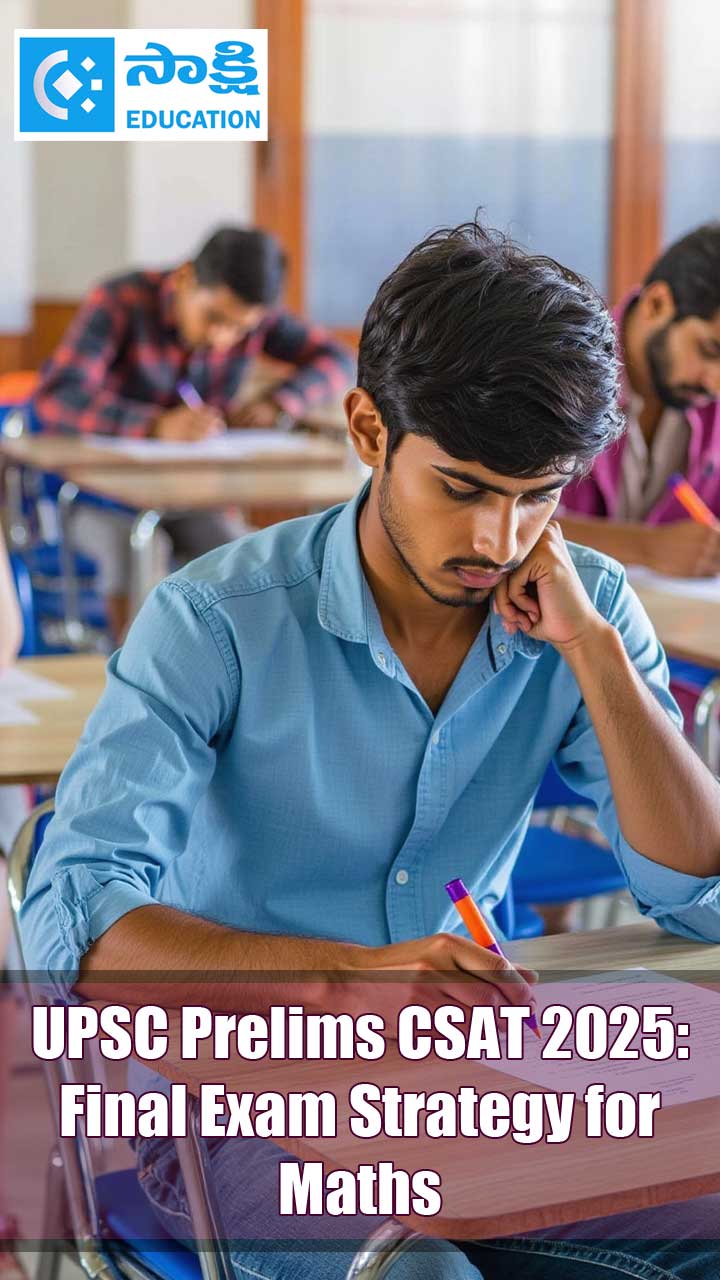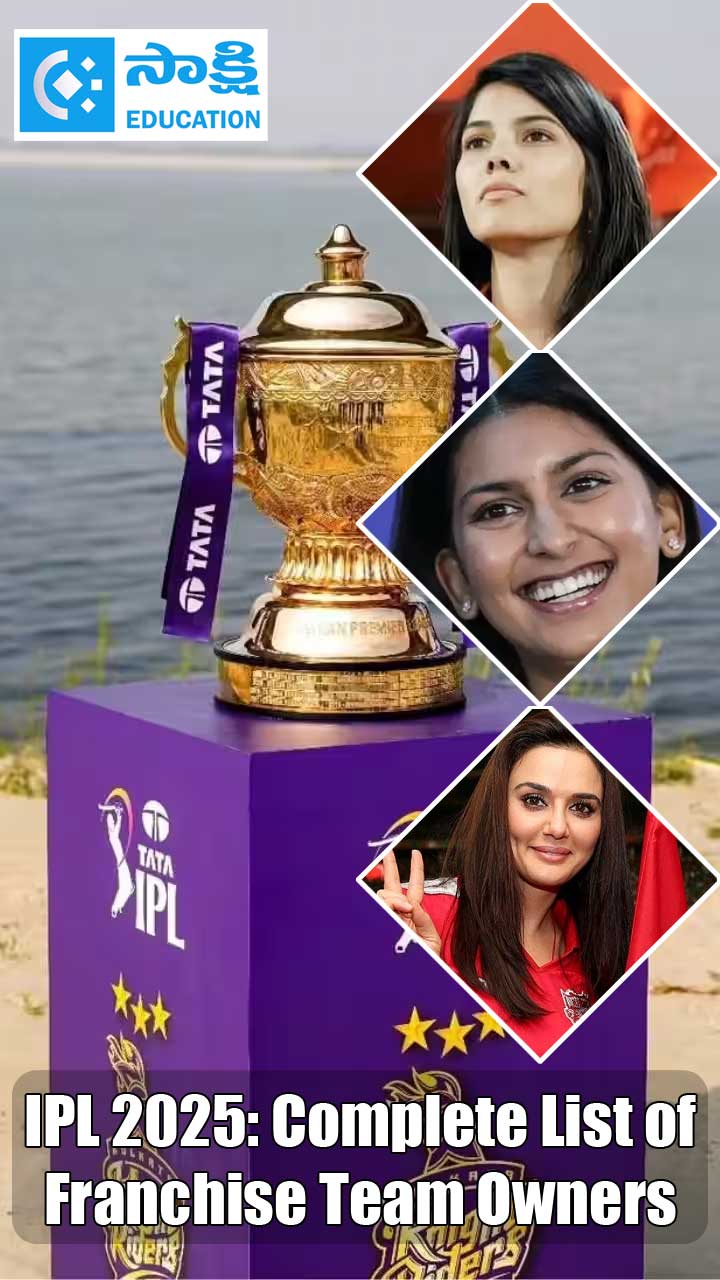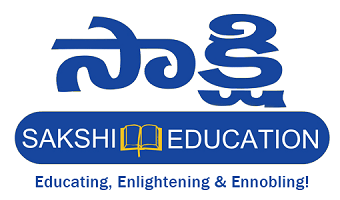Pandit Madan Mohan Malaviya- The Man, The Spirit and The Vision
Sakshi Education
The President has been pleased to award Bharat Ratna to Pandit Madan Mohan Malaviya (posthumously) and to Shri Atal Bihari Vajpayee.


The Prime Minister Narendra Modi, has expressed delight at this prestigious award being conferred on such stalwarts.
Prime Minister said:
"Bharat Ratna being conferred on Pt. Madan Mohan Malaviya and Shri Atal Bihari Vajpayee is a matter of great delight. Country`s highest honour to these illustrious stalwarts is a fitting recognition of their service to the Nation. Pt. Madan Mohan Malaviya is remembered as a phenomenal scholar and freedom fighter who lit the spark of national consciousness among people. Atal ji means so much to everyone. A guide, inspiration and giant among giants. His contribution to India is invaluable".
Pt. Madan Mohan Malaviya’s multifaceted personality made him, at the same time, a great patriot, an educationist with a vision, a social reformer, an ardent journalist, reluctant but effective lawyer, a successful parliamentarian and an outstanding statesman.
Biography of Mahamana Pt. Madan Mohan Malaviyaji (1861-1946)
Birth:
An embodiment of Indian culture and wisdom, Mahamana Pt. Madan Mohan Malaviya was born on Dec. 25th, 1861 in the locality named Lal diggi in Prayaga (Bharati Bhavan, Allahabad).
About his family:
His father was Pt. Braj Nath ji and mother was Smt. Moone Devi. Both of them were spiritually awakened people and had firm faith in Sanatan Dharma. It is said that the grandfather of Pt. Braj Nath was Pt. Premdhar, who was a renowned Sanskrit scholar and belonged to the family of Pt. Vishnu Prasad ji of Malava, a state in Central India. The grandfather, Pt. Premdhar came to Prayaga to settle down there, while other members of his family came to a nearby city named Mirzapur of Uttar Pradesh. Pt. Premdhar was famous for his fine and heart touching speeches on the Bhagavat Purana.
Among all his siblings, Madan Mohan was most talented and genius and had visionary aptitudes. This, 'Madan Mohan' by dint of his vision and dreams significantly contributed to the building of New India.
He became a guide to mankind in the sense of giving a new kind of leadership not only in the political field but more so in the field of Education, which was for him, the backbone for arousing people from ignorance to wisdom, from imperfection to the perfect man. This is how he was regarded as 'Mahamana'.
Education:
The early education of Mahamana was completed in Allahabad. Started at the age of five in Mahajani Pathshala, Madan Mohan imbibed the Hindu Sanskaras and while going to school, he used to visit the temple of Hanuman and recite the prayer every day.

On the auspicious occasion of Sri Krishna Janmashtami, he used to celebrate it whole heartedly. He started composing poetry at the age of fifteen with the pen name 'Makarand'. He passed matriculation examination in the year 1868 from Prayaga Govt. High school. Then he joined Myore Central College. He used to participate in several cultural events in the school as well as in the college. He established "Hindu Samaj" in 1880.
Marriage:
He was married with Kundan Devi daughter of Pt. Nand Lal ji of Mirzapur at the age of sixteen.
Social Works:
Pt. Madan Mohan Malaviya was the founder of several organisation and edited magazines of high standard in order to promote Hindu ideals of Sanatan Dharma, and to build India as a strong and developed country in the world. For this purpose, he founded "Prayaga Hindu Samaj", and wrote served articles on the contemporary issues and problems of the country.
He remained a member of municipality at Allahabad till 1916 and he was also an honoured member of Indian National Congress for several years.
After the death of his father, he decided to serve the nation in more than one way. In 1919, at the auspicious "Kumbha" fair at Prayaga, he started "Prayaga Seva Samiti" to serve the pilgrims. He admitted himself to the selfless action as inspired by 'Mahabharata', the great Epic, making the following famous shloka his mantra:

This goal became an ideal slogan later on.
Achievements:
Among Malaviyaji's many achievements, the most monumental was the establishment of the Banaras Hindu University or Kashi Hindu Vishvavidyalaya. In the course of his lifetime Banaras Hindu University came to be known as a Capital of Knowledge acknowledged across India and the World.
Great minds and personalities like Annie Besant, Mahatma Gandhi, Rabindranath Tagore, Shyama Charan De and many others joined hand with him in his quest for knowledge, arousing the national spirit in India and winning freedom with the power of education and righteousness.
Making of the Banaras Hindu University:
Pandit Madan Mohan Malaviya created history in Indian education with this institution - the first of its kind in the country. He chose Banaras as the site, because of the centuries old tradition of learning, wisdom and spirituality inherent to the place. His vision was to blend the best of Indian education called from the ancient centres of learning - Takshashila and Nalanda and other hallowed institutions, with the best tradition of modern universities of the west.
Pt. Madan Mohan Malaviya was greatly inspired by Dr. Annie Besant, an Irish lady, who came to India with motive of spreading Educational Programmes. She started Central Hindu College at Kamachha in the city of Varanasi in 1889, which became the nexus of the Banaras Hindu University later on.
Pandit ji, with help of the then Maharaja of Banaras, Sri Prabhu Narain Singh ji, proposed to establish the University named the Banaras Hindu University in 1904. In the year 1905, this proposal got the sanction of several Hindu organizations. On 31st Dec. 1905, in the Town Hall of Varanasi, under the chairmanship of Sri D. N. Mahajan, the proposal was finally approved.
In 1911, in the association of Dr. Annie Besant, a resolution was passed to establish "Kashi Vishva Vidyalaya", and on 28 Nov 1911, a society was formed to begin the work for the Banaras Hindu University. On March, 25, 1915, Sir Hurcourt Butler proposed a bill in the Imperial legislation Council for the establishment of the University. On Oct. 01, 1915, the B.H.U. Act was passed.
On Feb. 4th, 1916, i.e. Magh Shukla Pratipada, samvat 1972, the foundation of the Banaras Hindu University was laid down. A grand ceremony was organised to celebrate the occasion in which several eminent personalities of India, were present.
Years later:
Malaviya Bhavan, the former residence of the founder of the university, was opened for public in 1961 during Malaviya Centenary Year. This memorial building serves as the centre of studies and research on the life and teaching of Mahamanaji. It consists of five main constituents - Geeta-Yoga Library, Yoga Sadhana Kendra, Geeta Samiti, Malaviya Adhyayan Sansthan, and Malaviya Centre for Value Studies.
Last days:
Malaviya passed away in 1946. But his spirit still lives and there are many who bear the torch that he lit.
Source: Press Information Bureau
Prime Minister said:
"Bharat Ratna being conferred on Pt. Madan Mohan Malaviya and Shri Atal Bihari Vajpayee is a matter of great delight. Country`s highest honour to these illustrious stalwarts is a fitting recognition of their service to the Nation. Pt. Madan Mohan Malaviya is remembered as a phenomenal scholar and freedom fighter who lit the spark of national consciousness among people. Atal ji means so much to everyone. A guide, inspiration and giant among giants. His contribution to India is invaluable".
Pt. Madan Mohan Malaviya’s multifaceted personality made him, at the same time, a great patriot, an educationist with a vision, a social reformer, an ardent journalist, reluctant but effective lawyer, a successful parliamentarian and an outstanding statesman.
Biography of Mahamana Pt. Madan Mohan Malaviyaji (1861-1946)
Birth:
An embodiment of Indian culture and wisdom, Mahamana Pt. Madan Mohan Malaviya was born on Dec. 25th, 1861 in the locality named Lal diggi in Prayaga (Bharati Bhavan, Allahabad).
About his family:
His father was Pt. Braj Nath ji and mother was Smt. Moone Devi. Both of them were spiritually awakened people and had firm faith in Sanatan Dharma. It is said that the grandfather of Pt. Braj Nath was Pt. Premdhar, who was a renowned Sanskrit scholar and belonged to the family of Pt. Vishnu Prasad ji of Malava, a state in Central India. The grandfather, Pt. Premdhar came to Prayaga to settle down there, while other members of his family came to a nearby city named Mirzapur of Uttar Pradesh. Pt. Premdhar was famous for his fine and heart touching speeches on the Bhagavat Purana.
Among all his siblings, Madan Mohan was most talented and genius and had visionary aptitudes. This, 'Madan Mohan' by dint of his vision and dreams significantly contributed to the building of New India.
He became a guide to mankind in the sense of giving a new kind of leadership not only in the political field but more so in the field of Education, which was for him, the backbone for arousing people from ignorance to wisdom, from imperfection to the perfect man. This is how he was regarded as 'Mahamana'.
Education:
The early education of Mahamana was completed in Allahabad. Started at the age of five in Mahajani Pathshala, Madan Mohan imbibed the Hindu Sanskaras and while going to school, he used to visit the temple of Hanuman and recite the prayer every day.

Marriage:
He was married with Kundan Devi daughter of Pt. Nand Lal ji of Mirzapur at the age of sixteen.
Social Works:
Pt. Madan Mohan Malaviya was the founder of several organisation and edited magazines of high standard in order to promote Hindu ideals of Sanatan Dharma, and to build India as a strong and developed country in the world. For this purpose, he founded "Prayaga Hindu Samaj", and wrote served articles on the contemporary issues and problems of the country.
| Year | Works |
| 1884 | Member of 'Hindi Uddharini Pratinidhi Sabha' |
| 1885 | Edited 'Indian Union' English weekly |
| 1887 | Established ‘Bharata Dharma Mahamandal’ and he was |
| 1889 | Edited 'Indian Opinion' |
| 1913 | Decided to serve the nation for attaining freedom from British rule |
|
| He build 'MacDonnell Hindu Hostel' |
| 1907 | Started 'Abhyudaya' weekly |
| 1909 | Worked in English Daily called 'Leader' |
He remained a member of municipality at Allahabad till 1916 and he was also an honoured member of Indian National Congress for several years.
After the death of his father, he decided to serve the nation in more than one way. In 1919, at the auspicious "Kumbha" fair at Prayaga, he started "Prayaga Seva Samiti" to serve the pilgrims. He admitted himself to the selfless action as inspired by 'Mahabharata', the great Epic, making the following famous shloka his mantra:

This goal became an ideal slogan later on.
Achievements:
Among Malaviyaji's many achievements, the most monumental was the establishment of the Banaras Hindu University or Kashi Hindu Vishvavidyalaya. In the course of his lifetime Banaras Hindu University came to be known as a Capital of Knowledge acknowledged across India and the World.
Great minds and personalities like Annie Besant, Mahatma Gandhi, Rabindranath Tagore, Shyama Charan De and many others joined hand with him in his quest for knowledge, arousing the national spirit in India and winning freedom with the power of education and righteousness.
Making of the Banaras Hindu University:
Pandit Madan Mohan Malaviya created history in Indian education with this institution - the first of its kind in the country. He chose Banaras as the site, because of the centuries old tradition of learning, wisdom and spirituality inherent to the place. His vision was to blend the best of Indian education called from the ancient centres of learning - Takshashila and Nalanda and other hallowed institutions, with the best tradition of modern universities of the west.
Pt. Madan Mohan Malaviya was greatly inspired by Dr. Annie Besant, an Irish lady, who came to India with motive of spreading Educational Programmes. She started Central Hindu College at Kamachha in the city of Varanasi in 1889, which became the nexus of the Banaras Hindu University later on.
Pandit ji, with help of the then Maharaja of Banaras, Sri Prabhu Narain Singh ji, proposed to establish the University named the Banaras Hindu University in 1904. In the year 1905, this proposal got the sanction of several Hindu organizations. On 31st Dec. 1905, in the Town Hall of Varanasi, under the chairmanship of Sri D. N. Mahajan, the proposal was finally approved.
In 1911, in the association of Dr. Annie Besant, a resolution was passed to establish "Kashi Vishva Vidyalaya", and on 28 Nov 1911, a society was formed to begin the work for the Banaras Hindu University. On March, 25, 1915, Sir Hurcourt Butler proposed a bill in the Imperial legislation Council for the establishment of the University. On Oct. 01, 1915, the B.H.U. Act was passed.
On Feb. 4th, 1916, i.e. Magh Shukla Pratipada, samvat 1972, the foundation of the Banaras Hindu University was laid down. A grand ceremony was organised to celebrate the occasion in which several eminent personalities of India, were present.
Years later:
Malaviya Bhavan, the former residence of the founder of the university, was opened for public in 1961 during Malaviya Centenary Year. This memorial building serves as the centre of studies and research on the life and teaching of Mahamanaji. It consists of five main constituents - Geeta-Yoga Library, Yoga Sadhana Kendra, Geeta Samiti, Malaviya Adhyayan Sansthan, and Malaviya Centre for Value Studies.
Last days:
Malaviya passed away in 1946. But his spirit still lives and there are many who bear the torch that he lit.
Source: Press Information Bureau
Published date : 21 Jan 2015 10:47AM













